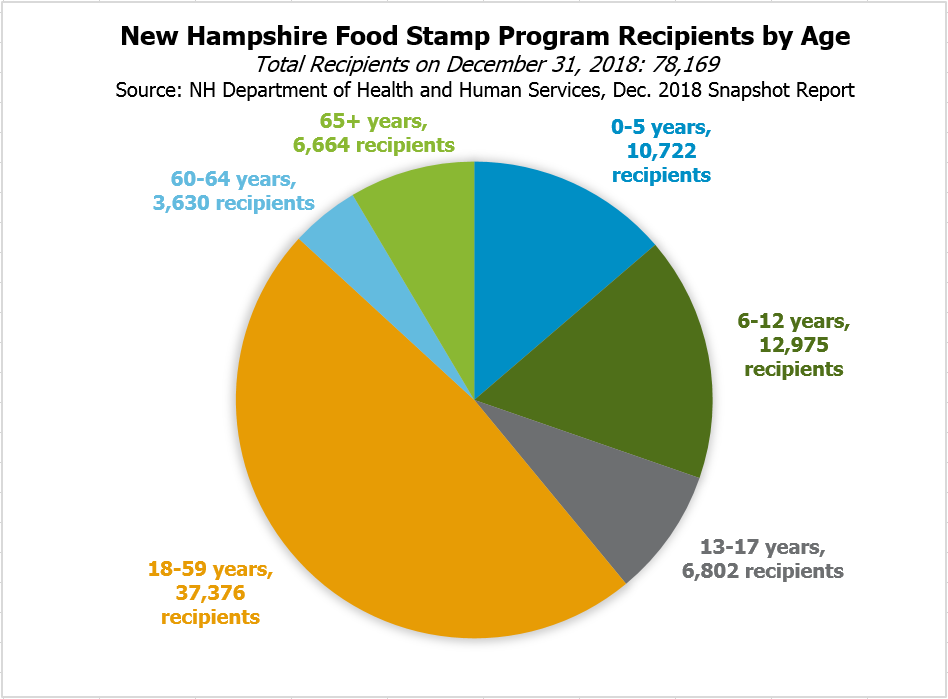The continuing partial federal government shutdown has jeopardized the continuation of food assistance through the New Hampshire Food Stamp Program to more than 78,000 individuals, including 30,000 children. The shutdown has prompted a shift in the timing of benefits for February in a way that might make it difficult for some families to pay for food throughout the month, and may leave those in need without food assistance beyond February if the shutdown continues.
The New Hampshire Food Stamp Program is the State’s version of the Supplemental Nutrition Assistance Program (SNAP), which provides food assistance targeted at those individuals with a combination of low incomes and limited assets or eligibility with certain other public assistance programs. Although the costs of administering the program are split roughly evenly between the state and the federal government, all the benefits dispensed are federally funded.
SNAP is administered through the U.S. Department of Agriculture, which is one of the agencies unfunded during the federal government shutdown. Although the agency is not funded, a provision in federal law permits SNAP to be funded for an additional 30 days.
As a result, the New Hampshire Department of Health and Human Services issued SNAP benefits for February on January 20, while the usual date would have been February 5. These benefits have not been reduced in size, but will not be supplemented with any additional benefits in February. That will leave many families without an installment of food assistance benefits for more weeks than usual even if the government reopens in short order.
This long gap in food assistance could lead to hardship for many families. Research suggests SNAP benefits are often used quickly, with nearly half of households with children using all their SNAP benefits within the first two weeks of issuance, and half of all SNAP allotments being redeemed within the first week following issuance. Other research suggests the cyclical nature of SNAP benefits can have detrimental effects on food security for households that rely on food assistance, and that SNAP benefits are unlikely to cover the cost of a meal for low-income individuals.
Families will have to stretch their just-received SNAP benefits through February, which may create additional hardships for those who are not aware that no additional benefits will be arriving during February. With food insecurity in New Hampshire remaining higher than it was prior to the Recession and 78,000 Granite Staters enrolled, many individuals with limited means will likely have to make very difficult choices.
For more on the New Hampshire Food Stamp Program, see NHFPI’s Fact Sheet.

